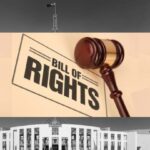Australian Government Proposes to Further Restrict Internet Freedoms

Independent public policy journal Pearls and Irritations has been running brief articles of late, entitled A Five Minute Scroll on X, which feature a number of posts from the popular social media platform over the 24 hours prior that serve to communicate news not covered by the local press.
The most recent scroll from 25 September includes Israeli colonisers in the West Bank destroying Palestinian property and land, South African president Cyril Ramaphosa confirming Israel is running an apartheid regime and Australian human rights lawyer Chris Sidoti outlining that a recent ICC inquiry found that “the Israeli army is one the most criminal armies in the world”.
The idea behind the articles appears to be that the news items shared on X are being neglected in the Australian mainstream media, as it has become increasingly obvious over the last 12 months that the legacy media, as part of the establishment, is refusing to report accurately or honestly in regard to the large-scale atrocities perpetrated by Israel against Palestinians in the Gaza Strip.
So, the media is increasingly appearing as a propagandist for government, which has meant Israeli war crimes have been framed as liberatory acts, while the vast support for the Palestinians that’s swelled within the community is in large part due to the freedoms currently being enjoyed online.
And in an attempt to combat the free flow of ideas, opinions and truths available on the internet, so that these no longer threaten the prescribed narrative the nation’s government and media is disseminating to the general public, the Albanese government has recently introduced the Communications Legislation Amendment (Combatting Misinformation and Disinformation) Bill 2024.
Reining in those freedoms
“In January 2023, the Albanese government committed to providing the Australian Communications and Media Authority (ACMA) with new powers to create transparency and accountability around the efforts of digital platforms to combat mis- and disinformation on their services,” explained communications minister Michelle Rowland during her second reading speech on the new bill.
The Misinformation Bill was introduced to parliament on 12 September, after its draft exposure was placed online on 24 June last year, with the minister confirming at that time that the laws do not “not empower the ACMA to determine what is true or false or to remove individual content or posts”.
While Liberal shadow minister for communications David Coleman chimed in, outlining that such “a complex area of policy” must avoid an outcome where “government overreach” reigns, and he further set out that it was indeed the opposition that first started spruiking this crackdown on internet freedoms in March 2022, just before it lost the last federal election.
Rowland opens her speech to parliament warning that whilst digital platforms have benefited humanity by making communications across the globe available to all, “digital platforms can also serve as a vehicle for the spread of misleading or false information that is seriously harmful to Australians”.
But the minister neglects to reflect on the fact that much of the information on Israel’s actions in Gaza that has been available online has led to the huge outpourings of grassroots people supporting the Free Palestine movement in a manner that hasn’t happened before, and this has been despite western governments and mainstream media skewing the truth to support Israel’s action positively.
Reining in the net
In her speech, Rowland outlines the digital platform industry took on some of the responsibility in reducing the spread of mis- and disinformation, when it adopted the Australian Code of Practice on Disinformation and Misinformation (the DIGI Code), which is a voluntary set of standards that key major digital platforms, including Google and Meta, adopted at government request in early 2021.
Digital platforms, like X and Telegram, however, don’t adhere to this arrangement.
But the minister underscores that the code does not go far enough and suggests that the majority is screaming out for her government to act on false information online, which is an assertion being made eleven months into the Gaza genocide, when vast numbers of the community are questioning the disconnect between ABC reporting on Gaza and the information available on X.
“The bill will establish a proportionate, graduated and flexible regulatory framework, while at the same time safeguarding the freedom of expression that Australians hold so dear,” the minister insists. “The bill also ensures that it is digital platforms that remain responsible and accountable for the content they host and promote to Australian users.”
The regulatory framework being established will empower ACMA to require a digital platform that it considers is transgressing the regime to produce reports to ensure the media watchdog that it is taking adequate steps to eradicate any mistruths it has been featuring or propagating.
The guts of the bill
If a particular section of the digital platform industry is considered to be dragging its feet on mis- and disinformation, ACMA can direct bodies and associations operating in that sector to develop their own code of practice, which the statutory body could then approve and make actionable in terms of enforcing measures.
But it must be noted that the regulatory framework to guard against the spread of mis- and disinformation, which is apparently leading to much anxiety in the community, will not apply to government publications, those of the mainstream media and neither publications produced by accredited education providers.
In the event that industry players who have been through the process of developing their own codes are found to be continuing to propagate false versions of the truth online, ACMA can then step in and determine its own set of standards that particular platforms or sectors of the industry must adopt due to contravention of an earlier code, which had been established in collaboration.
The Labor legislation also establishes two new civil penalties to be inserted into the Broadcasting Services Act 1992 (Cth), which would involve platforms found not be in compliance with an approved misinformation code subject to a civil penalty of a fine of up to $3.3 million or 2 percent of the body corporate’s annual turnover, while individuals would face a fine of up to $660,000.
The other breach involves noncompliance with a misinformation standard, which could see a body corporate fined up to $8.25 million or 5 percent of its annual turnover, while individuals not complying could face a fine of up to $1.65 million.
Silencing dissent
Former Australian Chief Medical Officer Dr Nick Coatsworth appeared on 2GB shock jock Ben Fordham’s program on Wednesday morning to declare that the misinformation bill ought to be rejected in its entirety, and he pinpointed the fact that the laws are being rolled out to target social media in particular.
The leading health professional raised specific concerns over information being propagated online about preventative medicine, which became problematic over the pandemic period, adding that the matter boiled down to whether we can “actually have a law that starts to define” mis- and disinformation, so that “those sorts of things that can sort of be contested in the legal sense.”
But another key question about the imposition of such a regime lies around the falsehoods being propagated in regard to the Israeli-perpetrated genocide in Gaza and how without the input of global media players, like Al Jazeera, and the content being shared on platforms like X, the official sanitised “Israeli right to defend itself” version of what’s occurring in the Mid-East could be all that’s available.
The Misinformation Bill was sent to the Senate Standing Committee on Environment and Communications for inquiry on 12 September. The inquiry will be reporting back on 25 November, with the deadline for submissions closing next Monday 30 September.







